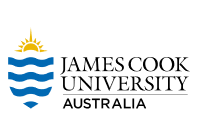One of the most important decisions when considering an MBA is whether or not to specialise. MBA specialisations, from finance and marketing to technology and entrepreneurship, offer targeted expertise that can shape your career path, enhance your job prospects, and set you apart in competitive industries.
But does choosing a specialisation make a difference in the long run, or are general MBA skills enough to succeed? Specialisations can bring depth to a specific field but may also limit flexibility.
Read this blog to know more about how an MBA specialisation could impact your career trajectory and help you make an informed choice.
Quick Links To Online MBA Programs
RMIT Online
Master of Business Administration (MBA) Online
- 2.7 years part-time, Reduced duration available
- Jan, Mar, May, July, Aug, Oct
- $4,560 per course, FEE-HELP available
Southern Cross University
Master of Business Administration (MBA) Online
- 2 years part-time
- Jan, Mar, May, July, Aug, Oct
- $2,990 per unit, FEE-HELP available
UTS Online
Master of Business Administration (Online)
- 2 years (minimum), Part-time
- 12 subjects | 7-week study blocks
- $4,250 per subject, FEE-HELP available
James Cook University
Master of Business Administration Global (MBA Online)
- 24 months , Part-time
- $3,700 per subject , FEE-HELP is available
- 12 (One subject per each 7-week study period)
Let’s get straight to the point
Deciding whether to specialise in an MBA program can significantly impact your career, with each path offering distinct advantages. Specialisations like finance, marketing, and entrepreneurship provide targeted expertise that enhances job prospects and sets candidates apart in competitive industries.
These specialised paths can lead to higher salaries, advancement into leadership roles, and better networking opportunities, especially in fields that require specific skills, such as finance or IT. However, a general MBA may offer more flexibility, particularly in sectors where broad business acumen is valued, like healthcare.
In Australia, top universities provide a range of MBA specialisations, catering to diverse career goals and industry demands. Admissions generally require a bachelor’s degree, relevant work experience, GMAT/GRE scores, and English proficiency for non-native speakers.
Ultimately, the decision to specialise depends on individual career aspirations, with specialisations beneficial for those seeking focused roles and general MBAs suitable for versatile business careers.
The Benefits Of MBA Specialisations

The value of an MBA specialisation varies depending on individual career goals, the industry, and the type of job. For example, specialisations can be more advantageous in fields like finance, marketing, and information technology, where employers seek candidates with specialised knowledge and skills to address complex industry challenges.
Conversely, some sectors may require something other than specialised knowledge. For instance, in healthcare, a general MBA may be beneficial for understanding diverse business and management concepts. In contrast, a specialisation in healthcare management could be more advantageous for individuals seeking roles in hospital administration or public health agencies.
The importance of an MBA specialisation in Australia depends on the industry, job market demand for specific skills, and your overall business and management competencies. A general MBA might be sufficient for certain roles, but specialisation could provide an edge in competitive fields.
There are multiple reasons to consider a specialisation within an MBA program. Here are some benefits to keep in mind:
- Specialised Knowledge and Skills – Employers often look for candidates with specific expertise, which can make you stand out in the job market.
- Increased Earning Potential – Professionals with specialised knowledge tend to command higher salaries.
- Career Advancement – A specialisation can open doors to leadership roles, as it provides the knowledge and skills needed to make strategic decisions.
- Networking OpportunitiesSpecialisations— offer access to a network of industry professionals, helping you stay updated on trends and find job openings.
- Personal Growth – Specialising can be personally rewarding as it encourages critical thinking, problem-solving, and the development of new skills.
Popular MBA Specialisations In Australia
Australia is home to a range of business schools offering diverse MBA specialisations. Here are some of the most popular options:
- Finance
A finance specialisation focuses on financial management, investment analysis, and decision-making and prepares graduates for investment banking, wealth management, corporate finance, and financial planning careers.
- Marketing
Emphasising a marketing concentration that emphasises consumer behaviour, marketing strategy, and market research can lead to careers in advertising, digital marketing, brand management, and market research.
- Entrepreneurship
For aspiring entrepreneurs, an MBA in entrepreneurship covers business planning, innovation, and funding strategies. Graduates can pursue careers as business owners, consultants, or venture capitalists.
- International Business
International business prepares graduates for roles in global corporations, government agencies, and international consultancy firms by focusing on global business practices and cross-cultural communication.
- Healthcare Management
This specialisation addresses healthcare policies, operations, and systems, making it ideal for roles in hospitals, health insurance companies, and public health organisations.
- Human Resource Management
Concentrating on talent management, employee relations, and organisational behaviour, this specialisation can lead to roles in HR departments, labour relations, and recruitment agencies.
Top Universities For MBA Specialisations In Australia

Australia offers some of the world’s most prestigious MBA programs with various specialisations. Here are the leading universities known for their MBA offerings:
- The Australian Graduate School of Management (AGSM) at the University of New South Wales
- Specialisations: Finance, Marketing, Social Impact, Technology, and Analytics.
- Features international business exposure and experiential learning opportunities.
- Melbourne Business School (MBS) – University of Melbourne
- Specialisations: Finance, Marketing, Entrepreneurship, Social Impact.
- Provides a solid foundation in business concepts with an emphasis on leadership skills.
- ANU College of Business and Economics – Australian National University
- Specialisations: Finance, Management, Entrepreneurship.
- Balances theoretical business knowledge with practical skills.
- Monash Business School – Monash University
- Specialisations: Finance, Marketing, Entrepreneurship.
- Prepares students for a global business environment with a strong emphasis on strategic skills.
- University of Sydney Business School – University of Sydney
- Specialisations: Finance, Marketing, Strategy.
- Combines academic theory with real-world applications for a comprehensive business education.
Each school offers unique MBA programs to equip students with the skills needed in the competitive business world.
Requirements For MBA Specialisations In Australia
To be eligible for an MBA specialisation in Australia, students generally need to meet these requirements:
- Eligibility Criteria
- Bachelor’s degree from a recognised institution.
- Minimum two to three years of work experience.
- Satisfactory Graduate Record Examination (GRE) scores or Graduate Management Admission Test (GMAT).
- Admission Requirements
- Completed application form.
- Official transcripts from previous institutions.
- Personal statement.
- Letters of recommendation.
- Resume or CV.
- English Language Proficiency
- Non-native English speakers must prove English proficiency through IELTS, TOEFL, or PTE exams.
Conclusion
An MBA in Australia can be a valuable investment, whether or not you choose a specialisation. For some fields, like finance or marketing, an MBA specialisation may be necessary to compete, while other sectors might value a general MBA just as much.
Attending a reputable business school can offer you advanced business knowledge, leadership skills, and access to a professional network, benefits that apply regardless of your specialisation.
Choosing an MBA specialisation depends on your career aspirations and industry requirements. Are you aiming to become a finance expert, a marketing professional, or a leader in healthcare? The right specialisation can enhance your career prospects and earning potential in your chosen field.
Frequently Asked Questions
It depends on the industry and job you are pursuing. In some cases, specialisation may be highly valued, while in others, it may not be necessary.
Most MBA programs in Australia offer a range of specialisations, including finance, marketing, operations management, and human resources.
An MBA specialisation demonstrates your expertise in a particular area and can help you stand out among other job candidates who may have a more general MBA degree.
When choosing an MBA specialisation, you should consider your career goals, interests, job market demand, and program offerings.
It may be possible to change your MBA specialisation, but it will depend on the policies of your specific program.





